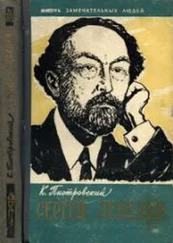Сергей Лебедев - Untraceable
Здесь есть возможность читать онлайн «Сергей Лебедев - Untraceable» весь текст электронной книги совершенно бесплатно (целиком полную версию без сокращений). В некоторых случаях можно слушать аудио, скачать через торрент в формате fb2 и присутствует краткое содержание. Город: New York, Год выпуска: 2021, ISBN: 2021, Издательство: New Vessel Press, Жанр: Современная проза, на английском языке. Описание произведения, (предисловие) а так же отзывы посетителей доступны на портале библиотеки ЛибКат.
- Название:Untraceable
- Автор:
- Издательство:New Vessel Press
- Жанр:
- Год:2021
- Город:New York
- ISBN:978-1-939931-90-0
- Рейтинг книги:3 / 5. Голосов: 1
-
Избранное:Добавить в избранное
- Отзывы:
-
Ваша оценка:
- 60
- 1
- 2
- 3
- 4
- 5
Untraceable: краткое содержание, описание и аннотация
Предлагаем к чтению аннотацию, описание, краткое содержание или предисловие (зависит от того, что написал сам автор книги «Untraceable»). Если вы не нашли необходимую информацию о книге — напишите в комментариях, мы постараемся отыскать её.
Untraceable — читать онлайн бесплатно полную книгу (весь текст) целиком
Ниже представлен текст книги, разбитый по страницам. Система сохранения места последней прочитанной страницы, позволяет с удобством читать онлайн бесплатно книгу «Untraceable», без необходимости каждый раз заново искать на чём Вы остановились. Поставьте закладку, и сможете в любой момент перейти на страницу, на которой закончили чтение.
Интервал:
Закладка:
“Enough. I believe you.” Kalitin wanted the priest to shut up. He could guess where that gas had come from. To stop Travniček’s train of thought, to confuse him, he asked, “Tell me, what happened to your face? Did you get sick during the travels? They have horrible infections in the East.”
“I was expecting your question,” Travniček replied calmly. “Well, I’ll tell you. It will help you understand me better.”
CHAPTER 19
Shershnev had seen real concentration camps. Of course, in Chechnya they were called filtration points by the Russians, built hastily on the territory of some half-ruined factory, as long as there was a high fence. Sometimes it was just in a field: four towers and a row of barbed wire stretched between poles.
But he had never seen a museum on the site of a former camp. An old fortress, earthen ramparts, sturdy brick forts. Casemates that served as cells.
It was drizzling. They wandered around, not knowing where to go, pretending to be reading the information panels.
Things couldn’t be stupider. Shershnev felt scammed. How had Grebenyuk put it? The adhesion was growing supernaturally. Or maybe the major hadn’t said it, Shershnev had thought it himself? Why was he here? They were being led around the woods by a forest spirit. It was rational to admit it. Impossible to ignore the facts.
But then Shershnev was lost. In his experience there wasn’t a single hint of a possible explanation.
All he could retrieve from his memory was the depressing astonishment with which he watched Charlie Chaplin movies as a child. Especially the one about the boxer. Shershnev had been in a boxing club, one run by the lightweight Sheredega, former army champion, winner of national prizes, and Shershnev was not one of his worst students. Sheredega later wrote a recommendation for admission to the special military school.
So when Shershnev watched the puny Chaplin mock his strong opponent, who should have destroyed him with the first punch, he helplessly made fists and regretted that he was not in the ring, for he would have shown him how it was done!
Shershnev could remember nothing more than this jester’s magic of slipping away, where the clown wins because all the twists and ducks are on his side, because the art of comedy is based on a continuous violation of the everyday, the usual, the correct. It was a parallel, but not an explanation.
The policemen who had shown them the way actually accompanied them to the memorial parking lot. They waved. But instead of leaving, they sat at a cafe table under an umbrella and ordered something from the waitress. They could see the entire parking lot from their seats. There was no place to hide, anyway, nothing but empty fields all around. Grebenyuk took out a pack of cigarettes, and they lit up, hoping that the police would have a cup of coffee and move on. But the waitress returned with a tray: two huge hamburgers and fries; big portions. She set down the plates and joined them at the table, smoking; she said something and they laughed—they could hear it, even though the wind was blowing in the other direction.
“This is going to take a while,” Grebenyuk said grimly.
The cops looked at them. The senior officer waved toward the gates—that’s where to go.
“Let’s go,” Shershnev commanded in a doomed voice. “The sooner we start, the sooner we’ll finish.”
So they wandered within the fortress walls, occasionally encountering other visitors. They wanted to sit in one place, but noticed the video cameras—who knew? Maybe they would send someone to see what was wrong.
Good thing we have no direct contact with the bosses, Shershnev thought. What would they report? How could they explain the delay? A museum visit? If this nonsense were revealed, they’d be thrown out of the department. They’d be lucky to keep their jobs. But that would be later. They’d be able to talk themselves out of it. Make up some story about car trouble, anything at all, the main thing was to break out of here, get back on the trail.
Shershnev was also worried about Grebenyuk. His partner was quiet. Probably planning his report, the bastard. He had to get the major on his side, get him to agree to any story he made up.
Shershnev could ask for help from the embassy resident spies. He could get money, satellite data, weapons. He was used to being a particle of state power. Now that power was being wasted, seeping into sand, and it was pointless calling for help—help against what? Against Charlie Chaplin? Mr. Bean?
He was suffocating. They had agreed to spend a half hour at the museum. Long enough for the cops to leave. It had been nineteen minutes.
Grebenyuk came around a corner, calm, collected. He stopped two steps away and looked at the ceiling, the simple, gray showerheads, high up out of reach. Shershnev realized that he was in a former gas chamber. There was the heavy steel door on wheels. He wanted to leave, but Grebenyuk carefully held him back with his hand on his chest.
“Listen, Lieutenant Colonel.”
Shershnev instinctively looked toward the door. Thank God, the cameras did not record sound. Basically, Grebenyuk was in his hands now. Breaking cover. If he reported that the major called him by rank in a public place, Grebenyuk would be arrested. Was he losing his mind?
But Grebenyuk looked perfectly fine, actually.
“Listen, Lieutenant Colonel,” he repeatedly softly. “This seems a good place for a quiet talk.”
Shershnev was taller, stronger. And he had had different training. He moved close and whispered an order.
“Shut it! Let’s go!”
“Hang on,” Grebenyuk said, raising his hands in a conciliatory manner. “We both feel that something’s wrong. I’m a technical man. We have strict rules. If things aren’t working, we have to find the reason.”
“That’s the point, you’re a techie,” Shershnev stressed the word. “But you’re talking nonsense.”
“Technology teaches you a lot of things,” Grebenyuk said. “Has it ever happened to you that the car won’t start, even though everything is fine? And then, it just starts? As if it had been waiting for something?”
Shershnev nodded reluctantly.
“That’s what I’m talking about.” Grebenyuk locked his fingers and then massaged them. “We like to say that if something that’s supposed to work doesn’t work, the reason is either at the entrance or the exit. I had this happen once. Came in to give advice. Two attempts, two failures. Detonators wouldn’t work. They had checked everything of course, and not like the usual slapdash. Well, I was sent in to check for sabotage. It was very strange. I checked—couldn’t have done it better myself. At the test site, it works. On location, it doesn’t. I thought and said: send in another team. The technology is fine. Something’s wrong with the man. They said: Is this official? I said: officially I will write that the technology is in order and the reason for failure is not clear. But you better send in new people. They did, and what do you think? It blew up perfectly. But the guy was still alive. His bodyguards covered him. He was alive. His bearded god was powerful.”
Grebenyuk looked away and chuckled.
“Six months later a conscript shot him. Eighteen years old. Wet behind the ears, just out of training. Couldn’t tell a rifle from his ass. The sergeants sent him into the woods for walnuts. The smarter privates buy them at the market and say they picked them. This brainless goof went into the woods. You know how these expeditions usually end.”
Shershnev knew. He’d seen videos that soldiers passed around on cassettes. Later they appeared on the Internet. He didn’t know that Grebenyuk had also been there, in the mountains, and now he felt a closeness to him, as if they had pledged friendship over drinks.
Читать дальшеИнтервал:
Закладка:
Похожие книги на «Untraceable»
Представляем Вашему вниманию похожие книги на «Untraceable» списком для выбора. Мы отобрали схожую по названию и смыслу литературу в надежде предоставить читателям больше вариантов отыскать новые, интересные, ещё непрочитанные произведения.
Обсуждение, отзывы о книге «Untraceable» и просто собственные мнения читателей. Оставьте ваши комментарии, напишите, что Вы думаете о произведении, его смысле или главных героях. Укажите что конкретно понравилось, а что нет, и почему Вы так считаете.












